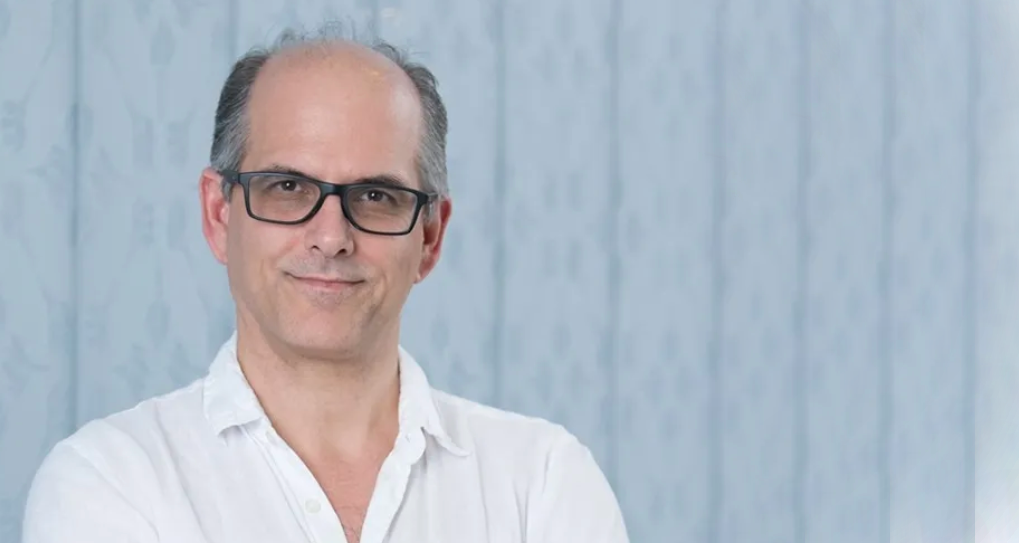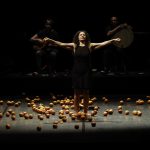Dr. Jonathan Holt Shannon is an anthropologist and a musician. He spends most of his time in academia as a Professor of Anthropology at Hunter College in New York City, where he teaches courses and carries out research in the anthropology of Arab music and art, as well as in Middle Eastern studies, culture and politics.
His research focuses on the musical cultures of Syria, Morocco and Spain. He has authored two influential monographs on Islamic music: Among the Jasmine Trees: Music and Modernity in Contemporary Syria and Performing al-Andalus: Music and Nostalgia across the Mediterranean. His more recent research focuses on the music of Syrian refugees in Turkey, Germany and Sweden.
How did you become an anthropologist and a musician?
I was always an anthropologist – aren’t we all!?! I always had questions about our world, and I loved to travel. I studied literature as an undergraduate and worked in medical research after I graduated. It was the early 1990s and I lived in New York City, and I decided to take night classes at Hunter College, a university near where I lived. I took Introduction to Cultural Anthropology, and at the end of the term I spoke to a professor in the graduate centre, and I was admitted into the Ph.D. programme.
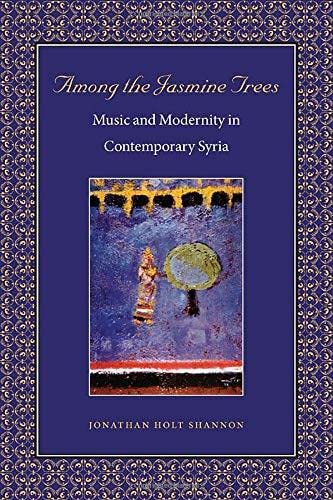
Why Syria, and when did you first visit? What was your experience there?
I was attracted to Syria because of my familial roots – my grandfather was born in Lebanon and his mother, my great-grandmother, was born in in Aleppo, so I had an interest in the region and wanted to study it further. After I was accepted into the Ph.D. programme I took an intensive immersion course in Arabic, then in the summer of 1994 I went to Cairo and attended CASA (the Centre for Arabic Study Abroad), where I studied advanced Arabic.
I first visited Syria in August of 1994 and went again in 1995. Syrians are hospitable and dignified, and there is a strong sense of cultural etiquette there, even when drinking coffee (you never drink the water after the coffee!). These were my first times in the region, and I learned the cultural differences between Cairo and the cities I visited in Syria. For example, people of Cairo don’t like to disappoint foreigners – they might give you directions to a place even if they don’t know where it is, and it is very much a bartering culture. Syrians will tell you if they do not know the way, and if they do, they will help you and sometimes take you there, even when its 35 degrees on the street!
How did you come to research and write about music in Syria?
My introduction to Syrian music was serendipitous. During a study break from my course in Cairo, I flew to Aleppo, where the annual Syrian music festival happened to be taking place. I picked up a local newspaper and it was full of concert schedules, so I attended a few of them. I enjoyed my time there and decided to visit Damascus.
There was a sense of orderliness in these places, and I loved the food, plus there was the ancestral tie, so I decided to stay.
I was already musical – I could play the saxophone and the flute – and I decided to look for someone to teach me to play the ney flute. Then I met a teacher specialising in the oud, so I decided to learn that instead.
Can you talk about your visits to Syria and what you researched when you were there?
My first Ph.D. research trip to Syria was to Aleppo in 1995. The French musician and composer, Julian Weiss, called me – he was living in Aleppo at the time, and I visited him. He had another guest at the same time – a famous oud player, Muhammad Qadri Dalal, who I was familiar with because I listened to his music when I was in Cairo. Muhammad is now a mentor and a friend to me.
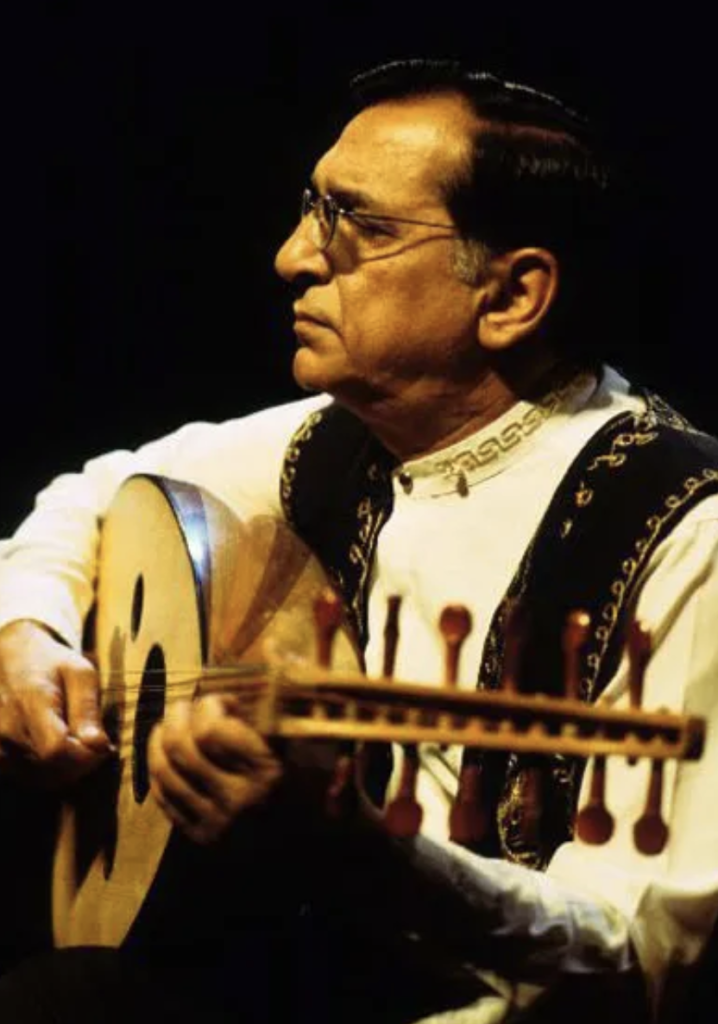
I took intensive oud lessons with Muhammad, and he visited me at my apartment nearly every day. The stars were aligned – it worked out on many levels. I learned so much about Syrian musical culture from Muhammad – and he was a man of great theoretical knowledge.
I also visited Damascus and came across a cassette shop, “Sham Dan,” where the owner, the late Adel Zaki, carried music by local artists. There was a big cassette culture in Damascus and I began to acquire a large collection of recorded music. I visited this shop regularly and I became friends with the owner. He had everything – over a million songs in his collection, and he used to play songs for me. I was building a collection of Syrian music and he helped me to curate it. He was an older man and asked me to call him ‘uncle,’ a term of both respect and intimacy.
Tell us more about your studying and learning journey with Syrian music.
Traditional Syrian music has its origins in the Ottoman Empire, and includes elements of musical cultures from Persia, Turkey, and other parts of the Arab World. In modern times Syrian music is considered central to the larger body of what is now called “Arab” music. Syrians have been partly on board with this, as Assad’s Ba’ath Party were strong advocates of pan-Arabism. Also, heritage is important in Syria, and Syrian music has a strong tie to tradition and heritage.
Syrian music has been a conservator of ancient Arabian musical traditions. In other parts of the Arab World, music and songs are new and modern, even if they are based on Arabic poetry. But in Syria they still play the older songs, many having mediaeval roots. Music from the 10th century is still performed and composed, and it is still based on the Muwashshaha, an ancient musical-poetic genre and model, and a repository of Arabic culture and civilisation. This ancient genre is considered a museum piece in Egypt, but in Syria it is for the everyday, even in the context of war.
While traditional Arabic music had been neglected by the state for years, it was kept alive in traditional domains, like in private homes and in the Sufi zikr, which is how it survived. Sufism, the more mystical dimension of Islam, incorporates a spiritual and purification ritual called the zikr (chanted meditation). Sufism teaches that a beautiful voice is the best way to deliver the message of the Quran, and many great Syrian performers had origins in zikr in the mosque after Friday prayer. Sufi performers fed into the long stream of musical talent especially in Aleppo, which historically has been a cradle nurturing the best musicians.
In a way the zikr was the true music conservatory in Syria, as opposed to the Syrian National Conservatory system, which derives from French colonial rule and focuses on European classical music.
When was your last visit to Syria. Have you kept in touch with your musician friends who have fled?
My last visit to Syria was in 2009. Many Syrians have moved to Turkey, and I know of a few Syrian musicians who played music on the streets of Istanbul to make money when they first arrived. This is remarkable since busking was considered inappropriate in Syria, but they felt they had no choice as they needed to support their families. They were being resilient, determined and creative in their effort to survive and make lives for themselves. They were trained and talented artists, after all, and should have been performing in a concert hall.
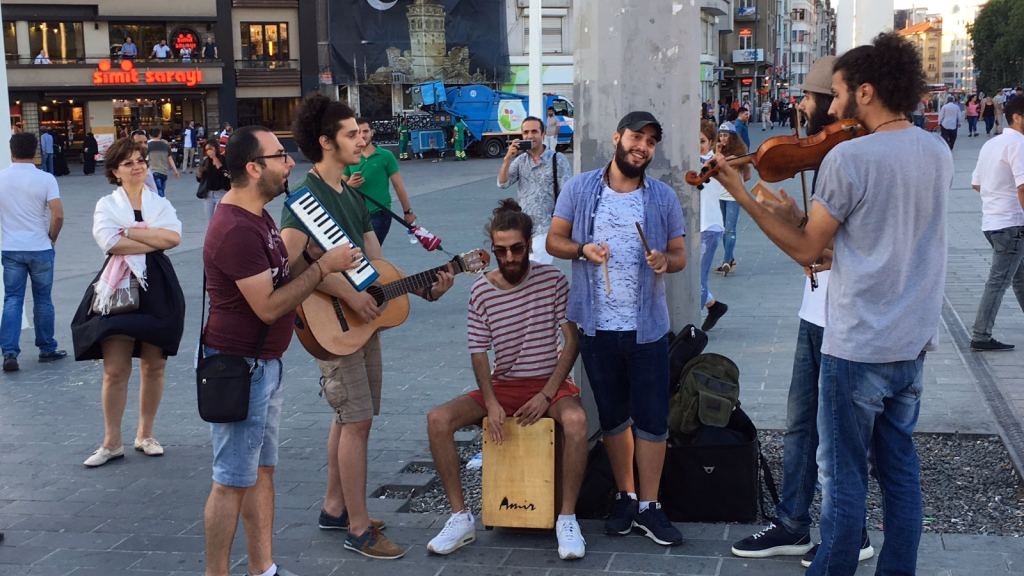
Istanbul now has a large Syrian population, and they have formed communities in and around the city. They want food and other comforts from Syrian shops and restaurants, and they want to hear Syrian music, so some of the well-known Syrian musicians have performed on Turkish television and are being interviewed in the Turkish press.
Many of my Syrian musician friends in Istanbul now have Turkish citizenship, and a few of them have opened music workshops where they teach, and many are thriving. There is a general understanding amongst this group of musicians that they will not go home.

